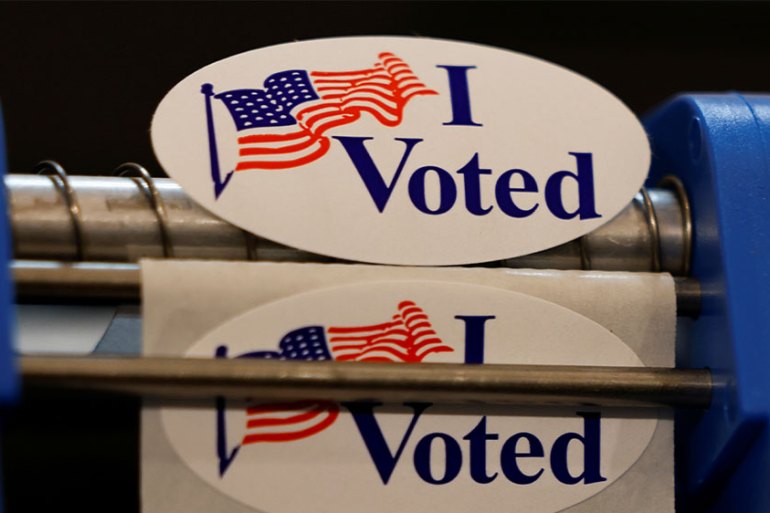By Salome Dermati,
The official date of the presidential election in the U.S. has always been celebrated and held to a higher standard than other types of elections, for example, that of a state Senate. This year, November 3rd is both anticipated and feared, considering the polarised political and social climate in the country. Yet, is it true that the final outcome will be decided on that day? Is the presidential race nearly over, or has it just begun?
In the U.S., similar to approximately every sovereign state in the world, the practice of early voting has been present for decades. The term signifies voting that specifically takes place prior to the scheduled Election Day. It has also been called “advance polling” and “pre-poll voting”, hinting at the core of this notion; time. In other words, early voting should be defined, first and foremost, as a voting procedure that is carried out before the official date of any public election.
In reality, early voting is performed in various ways and through different means. One method includes the in-person absentee voting (IPA) which takes place in designated local offices. It can also happen remotely, primarily via mail. The respective timeframe and eligibility criteria depend on the jurisdiction and the type of election. In fact, 38 states and the District of Columbia have implemented unconditional rules, meaning they do not require a reason for allowing people to vote early. Overall, the average length of early voting is 19 days which is bound to end before Election Day.
The modern origins of this mechanism can be traced back to the Civil War (1861-1865), when soldiers were given the opportunity to vote by mailing ballots to their family, who, by extension, had to cast them by proxy. In the following decades, state laws were drafted and put into effect so as to permit direct voting via mail, not only for the military, but for civilians alike. It was only in 2001, however, that a federal court made explicit that early voting was to be considered legal.
Interestingly, the majority of citizens who vote early consist typically of poll workers, campaign workers, members of emergency services, as well as hospital patients and pregnant women. The majority, therefore, has no other choice but to vote early, whereas the rest simply choose this system. The most common reasons for choosing early voting include convenience and less crowding at polling stations, the latter leading to lower waiting time and the relief of poll workers and volunteers on site. Additional benefits concern safety, accuracy, higher turnout, and the diversification of the electorate body.
At the same time, serious concerns are being raised. Cost-effectiveness is a relevant one, because providing these non-traditional services indicates the need for supplementary staff and facilities. Accessibility is equally important, for instance, regarding in-person early voting sites that must be “sufficiently numerous, convenient, and equitably located”. A third consideration relates to being “ill-informed”, given the constant and heavy flow of news that surround us and can influence our decisions. Lastly, counting the results has been proven to take longer than usual and can even last for weeks after Election Day.
Nevertheless, early voting has gained ground over the past three decades. This year, even more people are expected to turn up for early voting because of the ongoing pandemic and the corresponding health risks. In Minnesota, for example, a little under 900,000 requests for mailed ballots have been made and roughly 238,000 for absentee ballots, twelve times more than that of 2016. By October 11, all but 8 States will have begun distributing mail ballots, and only 17 will have initiated in-person early voting; Illinois, Maine, Michigan, Minnesota, New Jersey, South Dakota, Vermont, Virginia, and Wyoming were the first States to do so. A clear partisan distinction has also been observed, with more Democratic voters predicted to favour early voting than Republican ones.
On top of everything else, President Donald Trump has purposely suggested that he will not concede the election, in the case he is not declared the winner. It is assured that he will continue his passionate rhetoric against the Democrats and democracy, insisting on not recognising the outcome and arguing for electoral fraud and voter manipulation. In contrast, there have already been several cases confirmed of voter suppression, targeting especially communities of colour, which generally disapprove of the incumbent and his administration.
Taking into consideration the increased percentage of the electorate preferring early voting options, it is highly doubtful that the final results will be announced in the evening of November 3rd. Even more worryingly, the first results to come in will probably give Trump the lead, based on the traditional voting instruments. The situation seems very grim at this point, since no one can affirm neither a constitutional conduct of the voting process nor a peaceful transition of powers.
References
- Early Voting, Ballotpedia
- State Laws Governing Early Voting, NCSL
- What Is Early Voting?, Demos
- A Brief History of Early Voting, HuffPost






